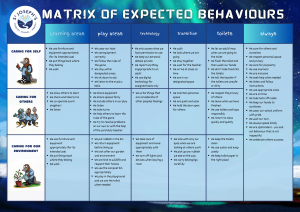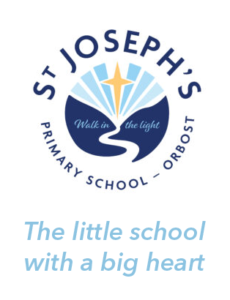Enhancing the wellbeing of all members of our learning community is at the heart of all we do.
All members of the school community have a significant role to play in supporting a whole school approach to positive behaviour. Where all members work collaboratively, each learner has the opportunity to fully participate, engage in the process of schooling and become a successful learner.
The characteristics of a whole school positive behaviour approach include:
- Prevention
- Instruction
- Use of evidence-based practises
- Utilising data for informed decision making
A positive behaviour approach supports teaching and learning environments so that the academic outcomes of students are maximised. This provides a structure and process for school communities and classroom operations so that a supportive social culture is established.
Positive behaviour approaches are cohesive, collective and collaborative, providing support and focus on the development of values, relationships and skills; embedded in the teaching and learning, organisations, ethos and environment and in the partnerships and services within the school community (WHO, 1998).
Principles underpinning positive behaviour approaches promotes high expectations for all learners in Catholic school through the understanding that:
- Students are central to all decision making and action
- The safety of all students is a priority
- All students can learn
- Effective schools enable a culture of learning
- Expert teachers are critical to student learning success
- Learning and teaching is inclusive of all
- Teaching support matches the needs and talents of the student
- Effective teaching practices are research-based
- Inclusive schools actively engage and work in partnership with the wider community
St Joseph’s Primary School have created WSAPBS school wide expectations.
These are our called the 3Cs:
-
Caring for Self
-
Caring for others
-
Caring for our environment
Everyone in our school community is expected to understand and adhere to the expectations, demonstrated by appropriate actions. It is further expected that staff members appropriately challenge any behaviour that is in conflict with them.

Strength based Language
It is important that students see themselves with a positive frame of mind. On a daily basis they should experience success and be provided opportunities to reflect on the good things that happen to them.
If at times, students need to be redirected, teachers should manage this through the use of respectful strategies that reinforce good decision making. Students will never be yelled at or belittled in front of their peers. Teachers must take every opportunity to build strong respectful relationships through dialogue that promotes positive self-esteem.
At St Joseph’s we foster a growth mindset and intrinsic motivation. Rewards for appropriate behaviour/effort/thinking are at the discretion of the teacher and should be a stepping stone to self-regulation by the students.
